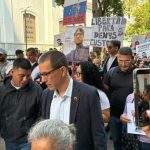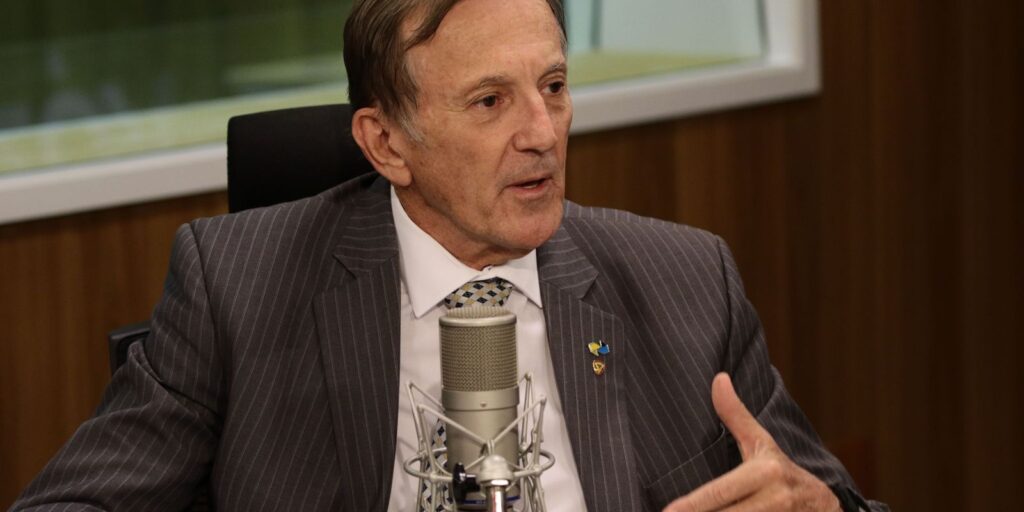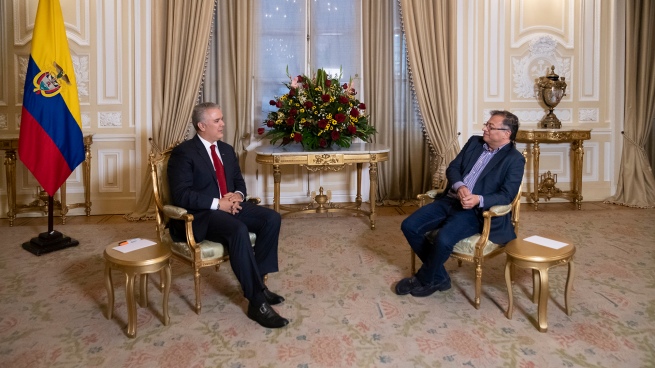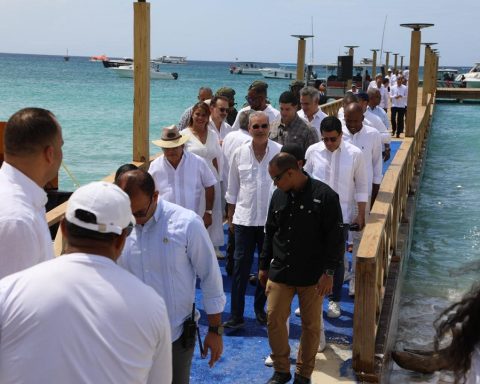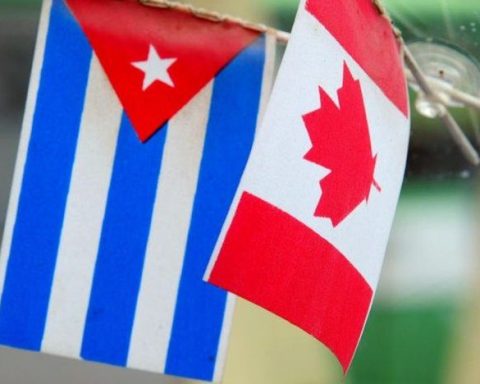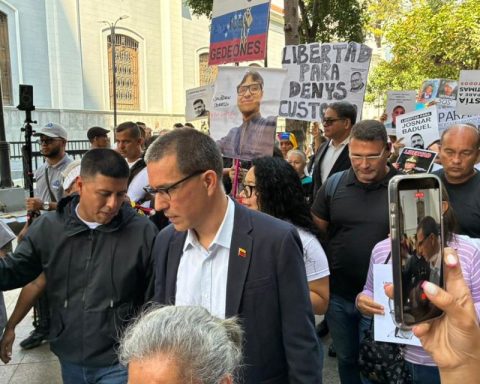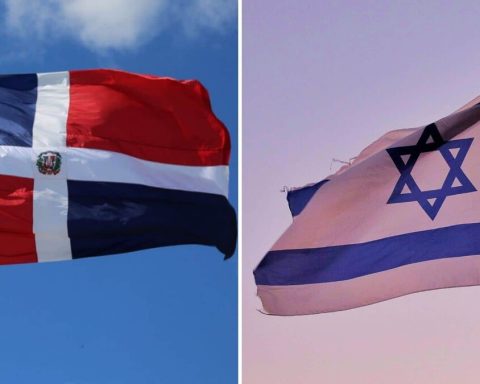For the third consecutive year, Unicef is launching the Time to Act campaign, whose main event, the telethon, will take place on June 26. To accompany and spread this campaign, The popular Argentine actor and presenter Julián Weich arrived, Since 1994 he has been a Goodwill Ambassador for UNICEF in his country.
_ What does it mean to be a UNICEF ambassador in almost 30 years?
It is a very big responsibility and a pride to defend the rights of the child where necessary. Unicef has been doing it for 75 years in more than 190 countries. I try to spread their rights and support everything to improve the quality of life of the boys. Children do not vote, they have nowhere to go to complain and it seems to me that organizations like Unicef can be the voices of the children.
_ What does the phrase ‘Time to act’ tell you?
It tells me that childhood in the world is compromised. To give an example that everyone can understand, the conflict in Ukraine and Russia is leaving millions of orphaned children, uprooted from their school, from their home, from their culture, from their country. And that doesn’t get fixed overnight. As much as the war ends tomorrow, that reality is not going to go back, that’s why I say it’s time to act.
_Currently, social and family dramas in countries like Bolivia increasingly involve children. In 2021, the State Attorney General’s Office reported 46 infanticides in the country. Given this reality, what is the role of Unicef?
We work since the child is nursing, we work for their rights. The child has the right to feed himself, to be educated, but also to play instead of working. Without a doubt, children today are living domestic violence in a terrible way. The pandemic caused many children, because they were locked up, to experience abuse and experiences of all kinds. Statistics gives us figures, but there are also facts that cannot be measured and that exist. What is not seen is much greater than what is seen. So, Unicef works to make reality visible in these fields.
_What progress has been made in reducing child labour?
In some ways, Unicef’s work is frustrating, because it’s never done. As much as great progress is made in the eradication of child labour, it continues to grow. After the pandemic, there was a high school absence because many children stayed working with their families, because parents said ‘I prefer that he is working with me than studying’. Although I don’t have the precise data, I can tell you that success in Unicef’s work is accompanied by failure, because the goal is never reached. What can be reduced are conflicts and make children’s needs visible so that the whole of society sees them.
_During the pandemic, much of the health sector’s efforts focused on combating the disease. What were the main needs of the children that were observed in this period?
One of the greatest needs of children has to do with the lack of access to drinking water, this produces many diseases. Today, in the world, a large number of children die of diarrhea and the origin of the problem is much more basic than one imagines. Many deaths can be avoided if one focuses on this problem.
_It is the first time you arrive in Bolivia. What do you highlight from the reality you found?
I visited a school in Montero, where students were taught menstrual health, and it was something that shocked me, because in Argentina they don’t talk about it. I was present in a class in which a facilitator talks to about 40 boys about menstruation and how men and women should behave. That it is not a disease, that you can take a bath, that it is the most normal thing. Then I saw that, in this way, the taboos and myths that society has created are broken. Thus, the boy learns that he does not have to bully the girl who is menstruating and must know that it is the most natural thing in the world. The truth is that this class was something that impressed me.
I also visited an early childhood center, where children under four years of age stay in the care of trained people, while the parents work and can rest easy knowing that the children are in good hands.
For the third consecutive year, Unicef is launching the Time to Act campaign, whose main event, the telethon, will take place on June 26. To accompany and spread this campaign, The popular Argentine actor and presenter Julián Weich arrived, Since 1994 he has been a Goodwill Ambassador for UNICEF in his country.
_ What does it mean to be a UNICEF ambassador in almost 30 years?
It is a very big responsibility and a pride to defend the rights of the child where necessary. Unicef has been doing it for 75 years in more than 190 countries. I try to spread their rights and support everything to improve the quality of life of the boys. Children do not vote, they have nowhere to go to complain and it seems to me that organizations like Unicef can be the voices of the children.
_ What does the phrase ‘Time to act’ tell you?
It tells me that childhood in the world is compromised. To give an example that everyone can understand, the conflict in Ukraine and Russia is leaving millions of orphaned children, uprooted from their school, from their home, from their culture, from their country. And that doesn’t get fixed overnight. As much as the war ends tomorrow, that reality is not going to go back, that’s why I say it’s time to act.
_Currently, social and family dramas in countries like Bolivia increasingly involve children. In 2021, the State Attorney General’s Office reported 46 infanticides in the country. Given this reality, what is the role of Unicef?
We work since the child is nursing, we work for their rights. The child has the right to feed himself, to be educated, but also to play instead of working. Without a doubt, children today are living domestic violence in a terrible way. The pandemic caused many children, because they were locked up, to experience abuse and experiences of all kinds. Statistics gives us figures, but there are also facts that cannot be measured and that exist. What is not seen is much greater than what is seen. So, Unicef works to make reality visible in those fields.
_What progress has been made in reducing child labour?
In some ways, Unicef’s work is frustrating, because it’s never done. As much as great progress is made in the eradication of child labour, it continues to grow. After the pandemic, there was a high school absence because many children stayed working with their families, because parents said ‘I prefer that he is working with me than studying’. Although I don’t have the precise data, I can tell you that success in Unicef’s work is accompanied by failure, because the goal is never reached. What can be reduced are conflicts and make children’s needs visible so that the whole of society sees them.
_During the pandemic, much of the health sector’s efforts focused on combating the disease. What were the main needs of the children that were observed in this period?
One of the greatest needs of children has to do with the lack of access to drinking water, this produces many diseases. Today, in the world, a large number of children die of diarrhea and the origin of the problem is much more basic than one imagines. Many deaths can be avoided if one focuses on this problem.
_It is the first time you arrive in Bolivia. What do you highlight from the reality you found?
I visited a school in Montero, where students were taught menstrual health, and it was something that shocked me, because in Argentina they don’t talk about it. I was present in a class in which a facilitator talks to about 40 boys about menstruation and how men and women should behave. That it is not a disease, that you can take a bath, that it is the most normal thing. Then I saw that, in this way, the taboos and myths that society has created are broken. Thus, the boy learns that he does not have to bully the girl who is menstruating and must know that it is the most natural thing in the world. The truth is that this class was something that impressed me.
I also visited an early childhood center, where children under four years of age stay in the care of trained people, while the parents work and can rest easy knowing that the children are in good hands.
;









